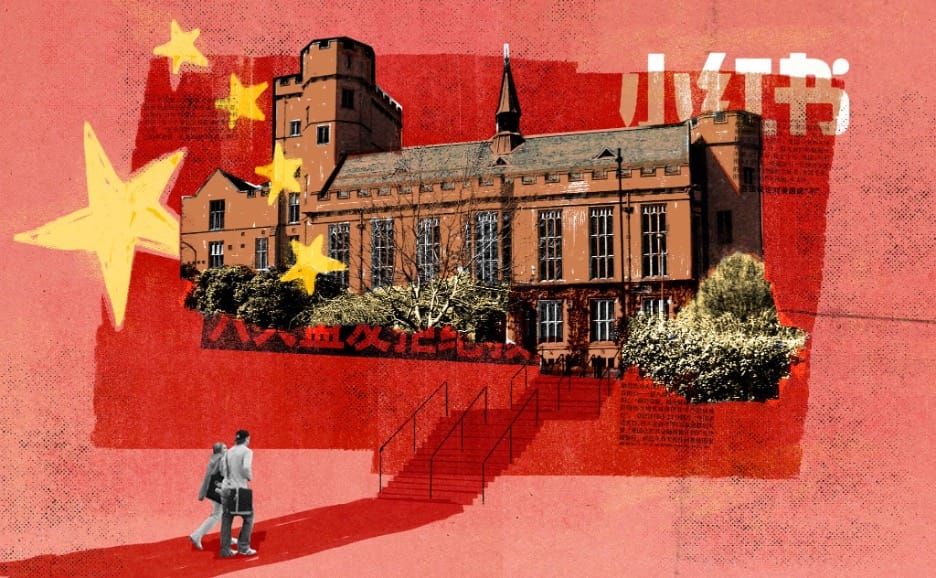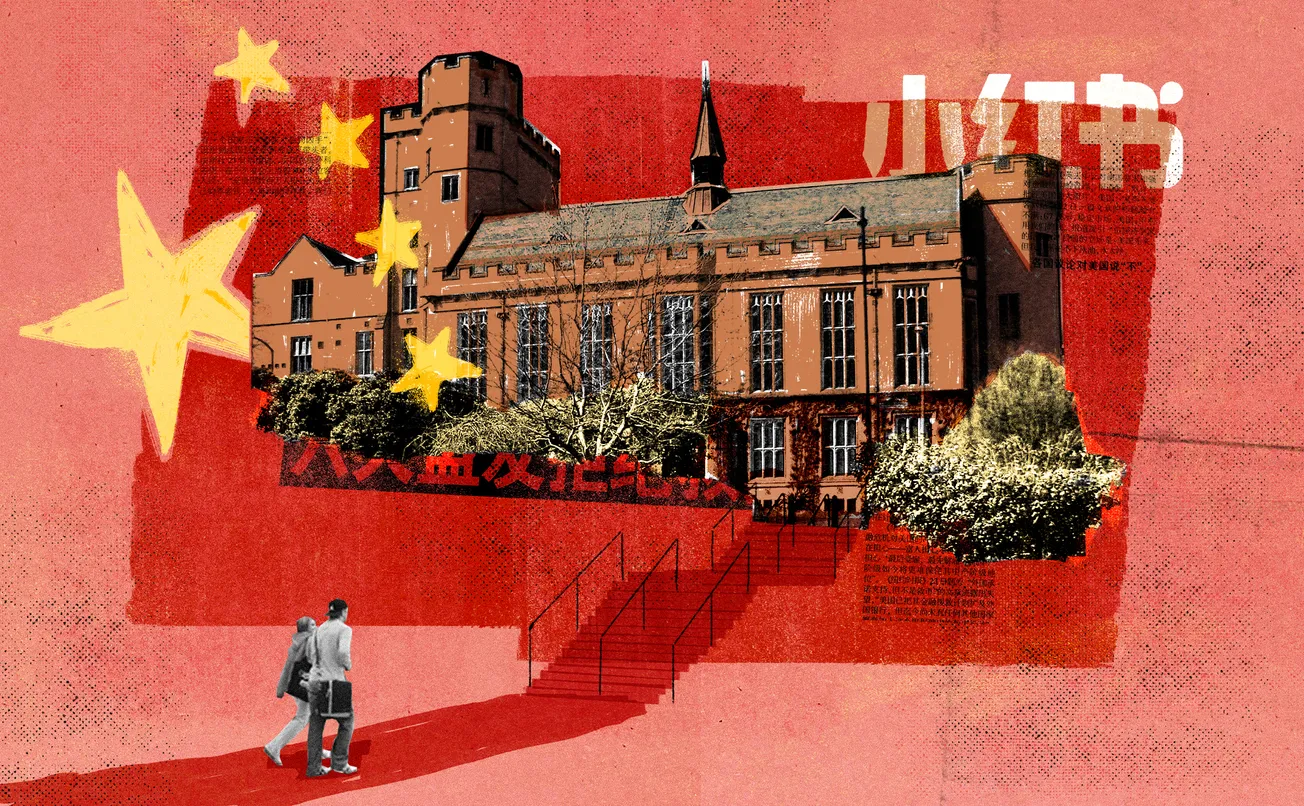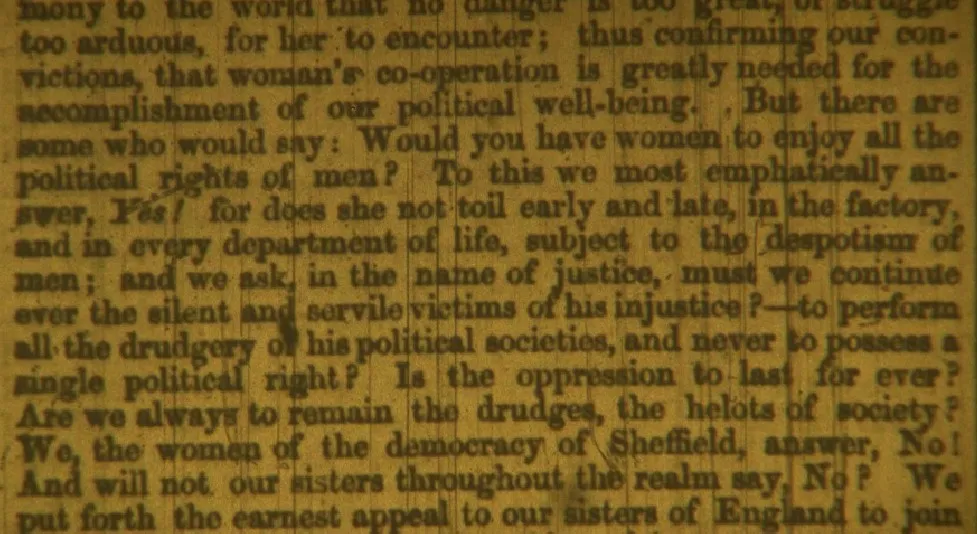“Don’t be a fucking disgrace to the other Chinese,” reads one message, sent to a former Chinese international student at the University of Sheffield. “Don’t say you’re Chinese from now on.” Only minutes later their abuser, another international Chinese student at the university, makes the exact opposite argument. “Remember you’ll always be a fucking Yanhuang son,” they write, referring to the mythical Yanhuang ethnic group of ancient China. “Your skin is yellow.”
The student receiving these messages, who would only speak to The Tribune anonymously but provided screenshots of the exchange, tries to videocall their abuser at one point in the middle of the tirade. “I’m not videocalling you because I don’t talk to dogs,” the other student replies. “Don’t call me with your dog paws.” They insist that only people who have the correct political views are “qualified to speak to” members of the Chinese Communist Party like them. “Change your nationality quickly if you’re not qualified,” they add.
The conversation on WeChat — a Chinese messaging app — was the first exchange the pair had ever had. It took less than 20 minutes to turn from seemingly innocent questions to a frantic stream of abuse. “傻逼 (shǎ bī),” the abuser messages repeatedly at one point, which literally translates to “stinking vagina” and is considered one of the most insulting curse words in Mandarin.
It began, the student tells me, around Chinese New Year. These days, the spring festival is often called Lunar New Year as an inclusive gesture, since it is also celebrated in other Asian countries, although some Chinese people consider this an offensive erasure of the holiday’s origins. It was after the student defended the use of the term Lunar New Year in a group chat for their course that their abusive peer got in touch, although they also seemed angry that the anonymous student was dating a non-Chinese person and had befriended one of the few non-Chinese students on their course.

For the rest of the student body, it’s easy to assume that the thousands of East Asian international students at the University of Sheffield are an entirely united front. After all, the two most common stereotypes about this group are that they’re all hideously wealthy — often seen in designer clothes and arriving to lectures in Ubers — and uninterested in getting to know anyone apart from each other. However, in 2019, it became obvious that the truth was far more complicated, after students from Hong Kong demonstrating in solidarity with pro-democracy protests back home were met by a defiant crowd of students from mainland China. The resulting clash saw one 19-year-old student arrested and cautioned by police. In a since-deleted tweet, Cllr Ben Miskell objected to the “ugly scenes” in the town centre that day, adding: “Whilst in China protest is banned, in the UK it is our democratic right & must be defended!”
When I asked the University of Sheffield what measures it had taken to address possible tensions between international students from mainland China and those from Hong Kong and Taiwan — which are often driven by political disagreements over whether these countries should become part of a unified China — a spokesperson chose not to address that question in their response. In the opinion of the anonymous former student, while the university’s support staff were eager to crack down on racism directed towards East Asian students, they seemed ill-equipped to deal with intracommunity issues like this or the abuse that student had received. When it comes to the disagreement over what to call the New Year celebration, for example, the institution splits the difference: referring to it as Lunar New Year on platforms like Instagram and as Chinese New Year on the Chinese social media app Rednote.
That might be because the university believes there’s a risk any interference in political matters would put off prospective students from China. It’s no secret that the number of Chinese students in Sheffield has fallen dramatically during the last two years — to the point where some are worried about local Chinese restaurants going out of business — and that this has had a serious impact on the University of Sheffield’s finances. Earlier this year, the university posted a job advert for a “Chinese Social Media Editor,” a full-time intern who would be responsible for boosting its popularity on Chinese social media platforms like WeChat and Rednote.
This seemed to me like a pretty desperate attempt to lure this demographic back to the city, and one I wasn’t convinced would be all that effective. As The Tribune has reported previously, the reason the number of Chinese students in Sheffield is dwindling is because the University of Sheffield recently fell out of the “top 100” universities worldwide, at least according to a very important metric. Unless it returns to this coveted top set soon — as numerous comments on its Rednote posts urge it to do — it’s unclear how it can keep the number of Chinese students from falling even further.
I’ve got some insight into this world — I’m a Taiwanese masters student, though I’ve mostly grown up in Britain. Armed with my conversational Mandarin (and my mum on speakerphone to translate when needed), I decided to ask current Chinese international students how they found studying here, and if there was anything the university could do to reverse the decline.

Comments
How to comment:
If you are already a member,
click here to sign in
and leave a comment.
If you aren't a member,
sign up here
to be able to leave a comment.
To add your photo, click here to create a profile on Gravatar.







